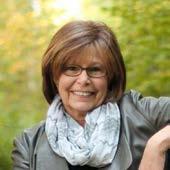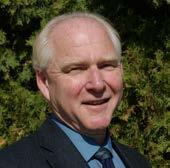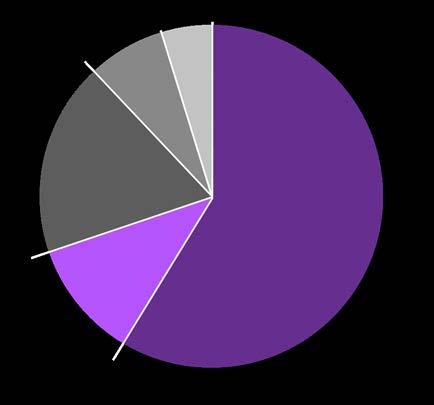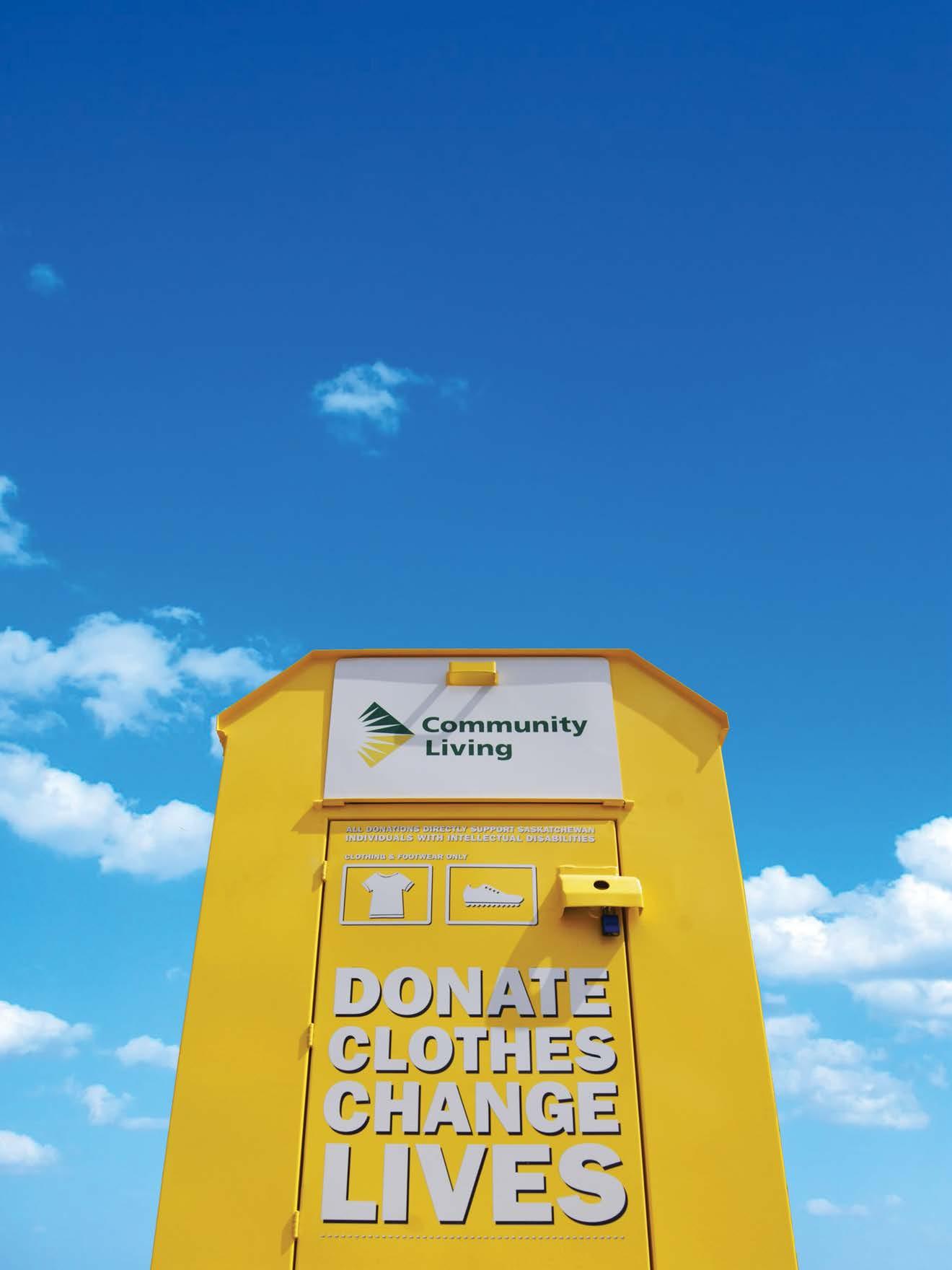
REPORT 2018/2019
CHAMPION SPONSORS


















Our mission is to ensure that citizens of Saskatchewan who have intellectual disabilities are valued, supported and included members of society and have opportunities & choices in all aspects of life.


REPORT 2018/2019


















Our mission is to ensure that citizens of Saskatchewan who have intellectual disabilities are valued, supported and included members of society and have opportunities & choices in all aspects of life.
Over sixty years ago, our founder Dr. John Dolan put an advertisement in the StarPhoenix to survey the number of children who were unable to attend school because they had an intellectual disability. The response to his ad inspired him, and many others invested in the disability cause, to start an association that would give a voice to individuals with intellectual disabilities in Saskatchewan.
Over the following decades, the association grew in both size and reputation. Branch associations sprang up in local communities to address local needs. Its scope widened to cover a gamut of initiatives ranging from crisis support and public education, to systemic work with the government of Saskatchewan and workshops for mothers, parents, and siblings of individuals with intellectual disabilities.
Today, Inclusion Saskatchewan supports over 2,900 individuals and families throughout the province. It works on a wide array of initiatives, projects, and priorities that include: advocacy, employment support, education and transition, public education, self-advocacy and social activities, and family network and workshops. Inclusion Saskatchewan's impact is felt throughout the province and in the many lives it has changed. While the association has come a long way since its original founding back in 1956, it continues to support individuals with intellectual disabilities and works to create a society where all individuals and their families are valued, supported and included.
2018-2019 BOARD OF DIRECTORS
Don Abrahamson
Kara Bernardin
Trina Brooks
Cindy Busse
Bluesette Campbell
Gini Calvert
Dianne Christianson
Dr. Ronan Conlon
Doug Conn
Jamie Ellis
Sherri Husch Foote
Clare Friesen
Kellan Gulka-Tiechko
Paul Kangles
Shilo Knutson
Nytosha Kober
Gloria Mahussier
Mike Mahussier
Janice Rutherford
Lawana Saretzky
Kim Sandager
Ted Schugmann
Loretta Schugmann
Wilda Wallace
Calvin Williams
Jackie Wilson
2018-2019 EXECUTIVE COMMITTEE
President Past-President
Vice-President
Treasurer
Director, Marshall ACL
Director at Large
Director, Humboldt ACL
Gloria Mahussier
Wilda Wallace
Bluesette Campbell
Janice Rutherford
Gini Calvert
Kellan Gulka-Tiechko
Ted Schugmann
My travels this year brought me through washed-out roads, through snow drifts, some which were almost as high as the window on my car, to being witness to the beautiful stunning skylines of our province. One of the things I appreciated most serving as President of Inclusion Saskatchewan is the people I get to meet. As president, I continue to meet people who are devoting themselves to helping families, children, and self-advocates.
Travelling with staff for our family information days, I have visited many strong, vibrant branches and family groups that are transforming their communities. When I attended their meetings, I felt the energy. When I met the families, I saw they are people of action. And when I looked at their communities, I recognized the impact of their desire to fulfil our mission. I want to express my appreciation to Biggar, Creighton, Meadow Lake, Weyburn, and Yorkton, for your generous hospitality when I visited.
This year has been one of closure and reflection. Valley View Centre in Moose Jaw will close at the end of 2019 and we will be saying farewell to representation on our Board of Directors from the Valley View Family Group (now known as the Valley View Legacy Network) as the group dissolves. We have also lost some dear friends and valued board members this year. It was with deep personal regret that I informed you of our past leaders, June Avivi, Dale Ebert, Jerry King, and Karen Rongve passings. These individuals gave so much of themselves to fulfill our vision and mission and our heartfelt thoughts go to their families.
Inclusion Saskatchewan has always had an opportunity to make a difference in this province, in supporting individuals who live with an intellectual disability. I am very appreciative to be part of such an exceptional team that includes our dedicated Board members and passionate staff. Our collective efforts enable us to change lives and when you do something as a group; it’s the best thing in the world. And for that, I am grateful.


Gloria Mahussier President
The mandate of our association is to make Saskatchewan more inclusive, and this year we’ve made incredible progress in doing just that. Over the course of 2018/2019, we supported over 800 individuals to live independently and inclusively and engaged with over 150 communities both large and small. We’ve even changed our name and brand from the Saskatchewan Association for Community Living to Inclusion Saskatchewan so that everyone in the province has a better understanding of the work we do and what we represent.
Out of all of our accomplishments that you’ll read about in the following pages, the one I want to highlight is our project transitioning former-residents of Valley View Centre into secure, inclusive homes in communities of their choice. After 7 years of working with individuals and their families, the Government of Saskatchewan, Valley View Legacy Network, Valley View Staff, and communities throughout the province, we will finally see the closure of Valley View Centre at the end of 2019. Having been involved from the start, I can say that it has been one of the largest endeavours our association has taken on in its entire history. We are beyond thrilled for all of the individuals now living out in their own homes and thriving in communities that have welcomed them.
This year, we also saw the power of inclusion in action as citizens of Saskatchewan came together in a united front to protest a decision made by a local municipality. We can't really measure how important the rights of individuals with intellectual disabilities are to the general population, so it was inspiring to see so many people coming out and supporting inclusion. The municipality reversed their erroneous decision and apologized. This event, along with many others throughout the year, showed us that we’re not alone in our work. It showed us that progress has been made, minds have been changed, and Saskatchewan truly has become a more inclusive place to live.


Kevin McTavish Executive Director
As one of Inclusion Saskatchewan’s largest funders, the success of Community Living directly impacts individuals with intellectual disabilities all over Saskatchewan. The resources generated by our clothing and miscellaneous donations allow Inclusion Saskatchewan to meet their financial needs today and plan for tomorrow. With that in mind, I am happy to report that this year has been another incredible year for Community Living, thanks to the outstanding generosity of our donors.
Our success is also due to the tireless work of our leadership, our partnership with Savers/Value Village, our bin placements and partnerships with business community members, our truck drivers, and our donation service reps. Together, all of these people bring together the vision of Community Living and we are so proud and grateful to work with such a wonderfully talented and committed team.

Looking back at the past 30 years, we can see that a lot has changed. The world has changed. Recycling has changed. Community Living has changed. It's hard to imagine how far we've come since we started first collecting donations, yet somehow at the same time it feels like we're just getting
33% Ministry of Social Services
The Ministry of Social Services plays a significant role in our ability to support individuals with intellectual disabilities in a wide variety of areas.
26% Community Living
15% Inclusion Breakfast, Grants, Donations
13% Ministry of Economy
Through the Ministry of Economy's funding, we are able to support individuals as they seek employment, pursue education, and transition from student to adult life.
4% Government of Canada
Employment and Social Development Canada supports many of our strategic initiatives including systemic work.
4% Investment Income
3% Other
2% Saskatchewan Lotteries Trust Fund


Initiatives
(Inclusive ED; SDF; NPI; RWA; DISC; National)
Fundraising and Communications Grants and Subsidies (Inclusion Team; Vocational ; Self Advocacy; Family Network)
We provide person-centred support and advocacy to individuals with intellectual disabilities and their families. Our Community Inclusion Consultants assist in resolution regardless of location or the nature of the issue. We also provide support by helping people navigate complex systems. The systems may involve governmental ministries, private businesses, public services or non-profit programs. The Inclusion Consultants research policies and procedures within the respective systems and help individuals and families understand the responsibilities and obligations of everyone involved.
Our team has continued to experience an increase in the numbers of individuals and families requesting support and advocacy in their communities. In total, we supported 542 people this year. Our team has also identified an increase in issues experienced by people that involved a variety of complex systems and required intensive time and effort to resolve appropriately. Often, individuals required advocacy support for multiple challenges they were trying to navigate in their lives. Inclusion Consultants responded to increasing requests for assistance in the following areas: access to affordable, supportive housing; community support; financial resources; and health care.
2,060 Meetings Attended 542 Persons Supported 90 Communities Engaged
We support individuals to recognize domains and facets of their overall quality of life. This is an individual's perception of how they view themselves relative to the culture, belief, and value systems in which they live and how it informs their expectations, dreams, and concerns. We track our work using these facets in the following groupings.
52%
We help people to live in their chosen communities in an inclusive, supportive, and sustainable manner.
28%
We help people learn how to manage personal relationships, develop social support, and maintain sexual wellness.
13%
We help people to plan and access the supports they need to live fulfilling, meaningful and active lives.
7%
We help people to create strategies, nurture self-esteem, cope with negative feelings, and promote holistic well-being.
The Inclusion Team continuously analyzes developing trends in the provision of individual advocacy support. Individual requests point to systemic challenges that require new perspectives and innovative thought to create permanent, positive change. The sustained efforts of the Inclusion Team continued to support the strategic plans of the Board of Directors to address the needs of the community. This year we continue to focus on:
• Transitions to Inclusive Community Living.
• Co-occurring Diagnoses of Intellectual Disability and Mental Health Concerns.
• Supporting First Nations Communities to access services.
Tell It Like It Is, the comprehensive and inclusive sexual wellness education initiative in partnership with Creative Options Regina and Saskatoon Sexual Health, continued its growth in community reach and capacity development. The partnership engaged in preliminary development of learning resources for the curriculum, and three groups of individuals participated in a combined 30 weeks of facilitated education. During January 2019, a professional enhancement conference was held with partners from the Univeristy of Saskatchewan College of Nursing and the Saskatchewan Prevention Institute.
Other highlights include:
• Facilitator training with a diverse and passionate group of professionals in Meadow Lake.
• Development of the website nevertmi.ca for Tell It Like It Is.
• Presentation at the Sexual Assault Services of Saskatchewan Annual Leadership Forum.
Self-advocates committed considerable time throughout the year to refining their vision of the self-advocacy movement and developing an action plan for the future. The planning occurred during a series of meetings, video conferences, surveys and workshops addressing the key issues that impact self-advocates and their peers as citizens within their communities. Insights were shared about self-advocates taking a lead role in communication with their elected officials, public servants, and other community members in order to foster mutually beneficial relationships and to promote the full implementation of the Saskatchewan Disability Strategy.
The Individual and Collective Advocacy Network (I-CAN) met at four separate workshops coordinated throughout the year in Saskatoon, Regina, and Prince Albert. Over 60 attendees at each workshop experienced the opportunity to engage in activities and exercises, which empowered learning in the areas of human rights, self-determination, and community leadership. Affirming conversations between self-advocates about the obligation of citizenship and sharing their talents and skills within their respective communities were foundational to the relationships cultivated at the workshops.
Valley View Centre transitions are coming to an end, with a final closure date expected by December 2019 or earlier. A total of 132 people have successfully moved into communities of their choice, leaving 20 individuals still at the Centre. People have moved to various locations throughout the province including Moose Jaw, Saskatoon, Regina, Swift Current, Prince Albert, and Warman. Many people have moved to communities closer to their family members and they have been able to reconnect after many years. The individuals, as well as their families, are extremely happy with their new lives. Everyone had an individual plan with a team behind them for support that has led to the great success of living inclusive lives in the community.

When our team first met Aiden, he was looking for safe, secure, and affordable housing. Additionally, he needed to be in an environment that was supportive of his life transition. He had a very clear vision of what he wanted his life to be, but uncertain of how to achieve it. Our Inclusion Consultants worked with Aiden to figure out the people and programs that could help him make his goals a reality. Shortly thereafter, our team helped him move into OUTSaskatoon’s Pride Home. A year later, Aiden has flourished. His time in the Pride Home and joining our I-CAN network has given him a whole host of new independent living and social skills.
We want social systems to be inclusive, person-centred, and to follow best practices. Inclusion Saskatchewan uses the knowledge gained while working with individuals with intellectual disabilities, their families, and with systems to identify areas where change is necessary to provide the best services and support possible. Our Strategic Initiatives team focuses on Inclusive Education, the Saskatchewan Assured Income for Disability (SAID), and Self-Directed Funding (SDF).
Provincial budgetary restraints in the education and social services sectors have created challenges to inclusion. Yet in our discussions with Saskatchewan residents, we hear that they want to see inclusion in the community. We hear that they want individuals with intellectual disabilities to be offered more choice and control over their lives. And we hear that they want people who experience disability to have a dignified standard of living. All the work in which Inclusion Saskatchewan engages is aimed at improving these systems so that those hopes and dreams will become reality.
The list of those with whom we work continues to grow as we are sought out to share our knowledge and expertise with groups across the province. We will keep building on these relationships as we show leadership in our priority areas and gain momentum in our efforts to achieve the most important goal: to make lasting systemic changes that will improve the lives of individuals with intellectual disabilities and their families.
We were pleased to be invited to sit on the reference committee for the Saskatchewan Teachers’ Federation (STF) Re-Imagine Education initiative. The committee began its work in the fall of 2018 and engaged in province-wide public consultations on the future of the education system in Saskatchewan. Massive amounts of data were collected and analyzed. The committee is presently in the process of interpreting the results, which will determine recommendations brought forward to the Ministry of Education. We are thankful to be part of such an important undertaking; one that has the possibility to dramatically improve the educational experience of students with intellectual disabilities. We are further excited to be strengthening our relationship with the STF as we work together in supporting all learners.
The animations team continues to work on a series of short animated videos on inclusion, which are being developed as classroom resources. A script for the first video as well as character sketches were distributed to a several key stakeholders for feedback. Those consulted include a number of self-advocates, the Ministry of Education, Saskatchewan Human Rights Commission, People First of Canada, Saskatoon Public Schools and Regina Catholic Schools. Inclusion Saskatchewan’s Inclusive Education Committee has also provided helpful insights at each phase of the project. All stakeholders have been supportive of the project’s direction so far, and look forward to seeing the final product.
2018-19 was a year of both triumph and change. Certainly, the highlight of the year was the announcement in the provincial budget that income exemptions for SAID beneficiaries will increase this summer, from a maximum of $325 per month to an annualized amount of $6,000 a year for a single individual. The change from a monthly to an annualized exemption means that earners can work seasonal jobs and spread the earnings across the year. The Ministry also simplified the way they calculate income exemptions, moving from a complicated formula to a flat rate maximum. A flat exemption will make it easier for both earners and employers to know how many hours can be worked before having to worry about accidentally incurring an overpayment from Social Services.
$200 + 25% of the next $500, to a maximum of
$250 + 25% of the next $700, to a maximum of $425/month. $200/month
A major change took place this year when the Minister of Social Services announced that the Program Implementation Advisory Team (PIAT) would be winding down its work at the end of May. PIAT has worked alongside the government for many years to develop and improve SAID policy, and the program is surely stronger for all their effort and dedication. A new Income Assistance Advisory Group with a broader mandate covering all income support programs is set to take over this work.
SDF has now been an option for two years. Since April of last year, 12 new contracts have been awarded. We are pleased that individuals who are approved for SDF are getting the opportunity to have greater choice and control over their services. However, there is still work to be done before SDF is operating in the way in which it was envisioned. Successful implementation of SDF depends upon ongoing training, quality resource materials, and adequate funding of plans. We continue to work closely with Community Living Service Delivery (CLSD) to develop the potential of the program. Because each individual and circumstance is unique, standardizing processes is challenging
The SDF Facilitator at Inclusion Saskatchewan had another busy year, assisting with both planning and with ongoing maintenance of SDF contracts.
Since April 2018:
• 157 new requests for SDF information were received.
• 101 planning meetings took place.
• 82 orientation meetings were held.
• 31 Expressions of Interest were submitted to CLSD.
• 16 Person-Centred Plans were developed for those seeking SDF.

Valley View Centre (located just outside of Moose Jaw, SK), was one of the largest institution of its kind. In 2012, citing repair costs and changing perspectives, the Government of Saskatchewan announced they would close the institution and put together a Steering Committee consisting of members from Inclusion Saskatchewan, the Valley View Legacy Network, and government staff. Over the past 7 years, our staff and the Steering Committee have worked to help now-former residents find safe, secure, and inclusive homes in the communities of their choice. After 132 moves, we're down to our last 20. This means that one of Canada's biggest institutions will finally close its doors sometime in 2019 - an important achievement not just for our association but for the province as a whole.
Our Family Network is a network of families who have a family member who experiences an intellectual disability. The network provides families an opportunity to meet other families and develop unique and lifelong connections with people who understand their life experiences and circumstances. Connecting with other families provides families with fresh perspectives and practical information, lessens isolation, and can help innovate new solutions. Through these connections, families gain empowerment, strength, and the important reminder that they are not alone in their journey.
This year saw substantial growth in the Family Network. The Family Network is represented by 1,230 family members (30% increase) in 87 communities. This growth is attributed to various community members and professionals referring families to the network. Additionally, our Workshops and Conferences have provided more opportunities for families to connect with the Family Network. 1,230
The Moms Workshop was hosted in November in Saskatoon and saw a 27% increase from last year with 57 moms from 23 communities in attendance. The weekend featured breakout sessions which offered attendees a choice between two different sessions. Presentations included: self-regulation, inclusive education, transitioning your child to adulthood, sibling perspective and strong relationships with your spouse. The moms also enjoyed a potluck, dance, craft & lots of time to connect and get to know each other.
The Sibling Workshop and Retreats continue to uniquely support siblings who have a brother or sister who experience a disability. Siblings came together for 2 workshops: one at Pike Lake which was attended by 33 children and youth and one at Redberry Bible Camp which was attended by 12 children and youth. The workshops offer the siblings a chance to enjoy fun, youth-focused activities including mini golf, bowling, camp fires, swimming and camp games. In addition to having fun, the siblings engage in workshops that provide them with a safe and supportive environment to express their concerns, worries and happy times. These workshops are facilitated by adult siblings who understand the sibling experience. This year we offered separate workshops for youth over the age of 12. This allowed the older siblings a chance to talk more in depth about concerns they are experiencing.
During the 2018/2019 year we expanded our sibling support network in order to support siblings sooner and started offering the Siblings Workshop 101 for siblings between the ages of 6-8. We recognize that even when siblings are young, they are still thinking about big issues. These workshops will act as an introduction to the sibling network and prepare and give guidance to young siblings on how to answer questions their peers might have about their siblings, how to handle bullying, how to include their sibling in play, how to have quality time with their parents and any other topics that arise. During the 2018/2019 fiscal year 2 workshops were hosted; one in Saskatoon with 4 children and one in Regina with 6 children.
The Parents Workshop was hosted in March at Manitou Springs Resort in Manitou Beach. This was the largest Parents Workshop to date with 82 people (44% increase) from 27 different communities in attendance. The workshop provided parents the opportunity to share and connect with other parents for mutual support. The event opened with introductions from all the participants and a potluck. During the weekend parents got the opportunity to pick breakout sessions including: self regulation, strong relationships, guardianship, self care for moms, and the newly created “Just for Dads” session.
Our Employment and Transition Facilitators help individuals with intellectual disabilities find community employment, support for post-secondary education, and to make the transition from student to adult life. Funded by Saskatchewan’s Ministry of Immigration and Career Training, we travel to schools and communities throughout the province building positive working relationships with families, schools, employers, and other community-based organizations.
Our team continues to meet students, families, school staff and agencies in a variety of capacities. We supported 274 individuals in 56 communities across the province. Of these, 56 individuals were provided support in creating, facilitating or maintaining employment and 218 were supported in transition planning or other areas. We also presented to over 300 individuals – including students, parents and professionals. Presentations highlighted available supports, provided information about transition planning, and answered key questions

Our Inclusion Events raised $140,000 this year, but fundraising events can do more than just raise money: they can raise the consciousness and the passion of a community. In their own words, people we support share their own stories and invite our guests to embrace the power of inclusion to change our society, starting today. In the words of one of our guests, “Inclusion SK’s Breakfast amazed me. . . instead of being entertained, I was enlightened. Instead of just giving a gift, I came away with the best gift: discovering an organization actually doing good in the world - people who say, it doesn’t matter who you are, there’s value in you.”
Through community development, we engage a wider circle of support, resources, and partnerships to benefit the well-being and inclusion of people who have intellectual disabilities. One of the key avenues of this development is philanthropy – that “love of humanity” that inspires people to give generously to support people who have disabilities. We are delighted to help people experience the joy of giving, since the more you give, the more you get back.
We bring people to events where they experience the power of Inclusion. This year, 165 guests had that experience at one of our 14 Inclusion Tours: lunch-and-learns where our guests can discover Inclusion Saskatchewan’s role in building a more inclusive society by hearing from our staff and people we support.
In addition, we hosted two signature Inclusion Events: our Inclusion Luncheon in Prince Albert and our Inclusion Breakfast in Saskatoon. We focus on “friendraising” by building a larger community of support where people give, not in exchange for something, but out of a belief in the benefits of inclusion for all of us. At these events, 50 people became Inclusion Champions by making a multiyear gift. Our events raised $140,172 and engaged 515 guests in getting to know our vision that all individuals are valued, supported and included in all aspects of life.
Our community development efforts would not be complete without the support of our corporate sponsors and grantors, whose names and logos are found on the inside cover of this report.
$399,000 Total Raised 515 Fundraiser Guests 11 Grants Received
BRANCH INCLUSIVE RECREATION GRANT
In 2018/2019 we allocated $30,000 in grants through our Branch Inclusive Recreation grant. This funding is provided by the Saskatchewan Parks and Recreation Association and the Saskatchewan Lotteries Trust Fund.
Humboldt and District Community Services Recreation and Respite Program
$4,000
Inclusion Hudson Bay Summer Recreation Program
$7,500
Inclusion Lumsden Fun with Friends
$4,740
Inclusion Lloydminster Recreation Liaison
$3,500
Inclusion Regina Sir Dancelot
$3,834
Inclusion Weyburn Inclusive Recreation Program
$4,000
Prince Albert Branch INTEREC
$2,426
INSK BRANCH PROJECT FUND
These grants promote the vision of Inclusion SK by providing financial assistance to special projects, supervised by the Board of Directors.
CLASI Camp Companion Program
$1,500
Inclusion Hudson Bay
$6,719
Inclusion Lumsden Inclusive Programs
$6,500
Inclusion Regina Cooking with Munch Program
$6,500
Moose Jaw ACL Connection of Friends
$3,100
Moose Jaw ACL Transitions for Life
$3,381
Prince Albert Branch INTEREC
$5,000
Yorkton ACL Making Waves Program
$2,300
This fund promotes the mission and vision of the INSK during Inclusion Month by engaging branches in celebrating inclusion.
CLASI - $500
Humboldt ACL - $500
Inclusion Regina - $500
Moose Jaw ACL - $500
Outlook ACL - $500
Prince Albert Branch - $500
Yorkton ACL - $500
2018/2019 INCLUSION CHAMPIONS (MULTI-YEAR PLEDGED DONORS)
Shelley & Colin Allard
Katherine Andersen-Hallberg
Randolph J. Antoniuk
Estate of June Avivi
Bill Baker
Carmen Bassingthwaite
Brad Bauml & Jacky McArthur
Karissa Beattie
Glenda Bell
Dale & Holly Berg
Berg's Plumbing & Heating Ltd
David Buckingham
Licia Burghall
Stacey Cameron
Matthew Cennon
Patrick Cey
Robin Chapman
Nancy Chappell
Bonnie Cherewyk
Drs. Anne Marie & Khami Chokani
Drs. Ronan & Susan Conlon
Doug Conn
Brent Cotter
Michael Dietrich
Rory Duncan
Christine Epp
Les Erickson
Jason Everitt
Tom Flath
Janice & Dale Fraess
Anita Fraser
Murray Fulton
Mike & Glenda Gartner
Dr. Steven & Leila Goluboff
Alaina Harrison
Dr. Dave & Mary Hastings
Estelle Hjertaas
Kim Hodson
Deb Hogg
Tim Hollman & Kelsey Meidl
Carin Holroyd & Ken Coates
Tim Hortons
Rylund Hunter
Peggy Jackson
Toby & Theresa Jaeger
Kate Joa
Stephen Jordan
Joanne Khan
Dr. Louis Kriel
Travis Kusch
Michelle Lane
Steven Lieffers
Lifelong Learning Inc.
Alan Long
Joyce Loraas
Amelia Lowe-Muller
Gloria Mahussier
Mann Agencies
Faye Marcoux
Denise Martens
Christina Martens-Funk
Rob & Audrey McCammon
Gail & Ron McDougall
Glenda & Dave McGillivray
Therese & Dave Mcllmoyl
Anne McIntosh
Kevin McTavish
Greg Meister
Caren Melby
Paul Merriman
Bradley Mitchell & Jana
Bassingthwaite
Lisa Mitschke
Joe Monahan
Kelley Moore
Christopher Moore
Jennifer & Glen Olauson
Michelle Ouellette
Todd Peterson
Jeff & Jackie Polovick
Bill Powalinski
Terri Rasmussen
Reid & Sons Directional
Drilling
Michelle Remenda
Whitney Romero
Dr. Alan Rosenberg & Dr.
Lesley-Ann Crone
Janice Rutherford
John & Christine Rye
Kari Scarlett
Jim Scarrow
Ron & Carol Schira
Angela Schmidt
Theodore Schugmann
Launel Scott
Tim Shanks
Dave & Heidi Shockey
Barry Singer
Caroline Smith
Marjorie Smith
James Sproule
Dr. Adam Stenerson
Tyler Stewart
McLelland Debusschere
Chartered Professional
Accountants
Bob & Helen Thomas
Tim Tkachuk
Mike Tornopolski
Adam Touet
Randal Touet
Daymond Volk
Brian Wallace
Wheatland Dental
Corporation
Daniels Wingerak
Engineering
Darlene Wingerak
Geraldine Woods
Gordon Wyant
Dorothy Zabraczki
Olivia Zhang
Brodie Zuk
